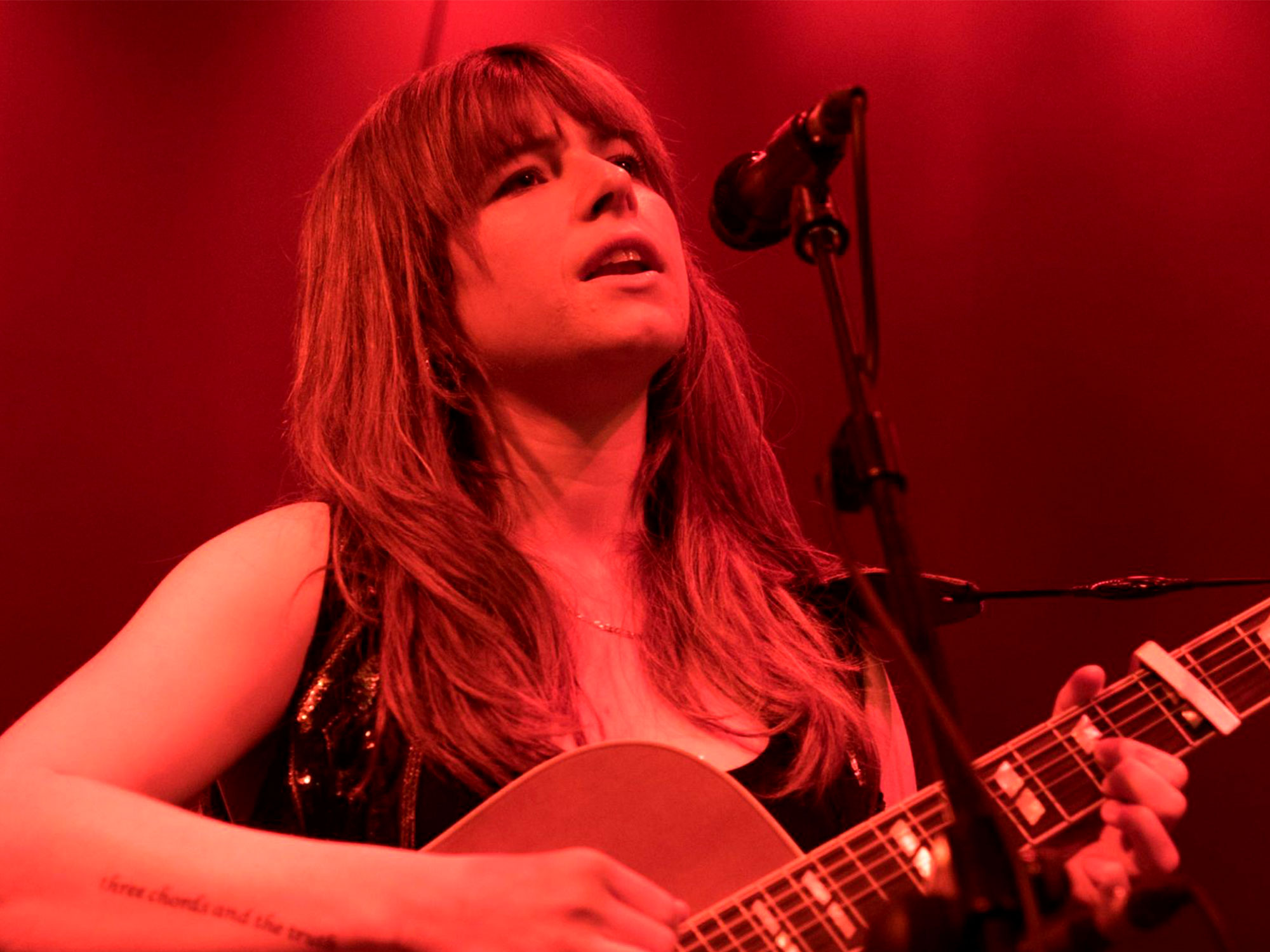
There is a sort of mythical strength that Jessie Buckley brings to her starring role in Wild Rose which transcends her physical frame. It rolls through her like thunder, a hungry, static energy proving beyond doubt that she belongs on the screen as much as her character, Rose-Lynn, an abrasive, aspiring Glaswegian country singer, belongs on the stage.
“Why country?” asks Susannah, her well-meaning middle class employer (played with warmth by Sophie Okonedo). “Because it’s three chords and the truth” Rose-Lynn replies readily, gesturing to a tattoo on her arm that reiterates the sentiment. This answer from probably anyone else would cause eyes to roll to the heavens, but there’s an unshakeable sincerity in Buckley that is instantly agreeable, an important trait given her character’s tendency to stray from the moral path.
We join Rose-Lynn walking out of a 12-month prison sentence, a court-ordered anklet clashing with her multi-coloured toenail polish. Before returning home to her young children and mother Marion (Julie Walters, enjoying a meatier role than her career has allowed of late) she visits an old boyfriend for grass-stained sex on a local estate, an early introduction to her reluctant take on parenthood.
Maybe she’s a bad mother, maybe she’s been in her own company for too long, but it’s clear that all parties see Marion as the preferred matriarch, with Rose-Lynn looking as crestfallen as her kids when their grandmother leaves them to reacquaint.

Before long she’s backed into a corner, her urge to perform infringing on her parental duties. The weight of her guilt is blindingly apparent, but it’s not enough to stop her from crashing the stage at her local music venue, or lying to Susannah about her home life in the hope that she’ll help send her to Nashville, where she dreams of stardom.
Screenwriter Nicole Taylor uses Rose-Lynn’s relationship with the two women to vocalise her inner battles. It’s an impressive first feature script with delicately formed characters that uses empathy to abolish any clichés that might come from a working class drama.
And then there’s the music. Rose-Lynn may find her confidence in performing standards instead of writing her own songs, but when she does break into her own material (notably the film’s closing song, a swelling tribute to home co-written by actor Mary Steenburgen) it’s the highlight of the film.
Director Tom Harper, who directed Buckley in the 2016 TV adaptation of ‘War & Peace’, equally plays his best hand during the film’s musical performances, transforming the south side of Glasgow into a vibrant, heel-tapping underground scene that could be mistaken for Tennessee were it not for the thick (flawless) local accents.
Where Michael Pearce’s Beast had Buckley meandering across wild and emotionally fraught terrain, in Wild Rose she is confidently locked into a single gear, like a human Berroca tablet constantly fizzing with energy and colour, giving Rose-Lynn the best shot at making it that she possibly can. Here’s hoping, come awards season, she might make it as well.
The post Wild Rose appeared first on Little White Lies.
![Forest Essentials [CPV] WW](https://s3-us-west-2.amazonaws.com/pcw-uploads/logos/forest-essentials-promo-codes-coupons.png)
0 comments